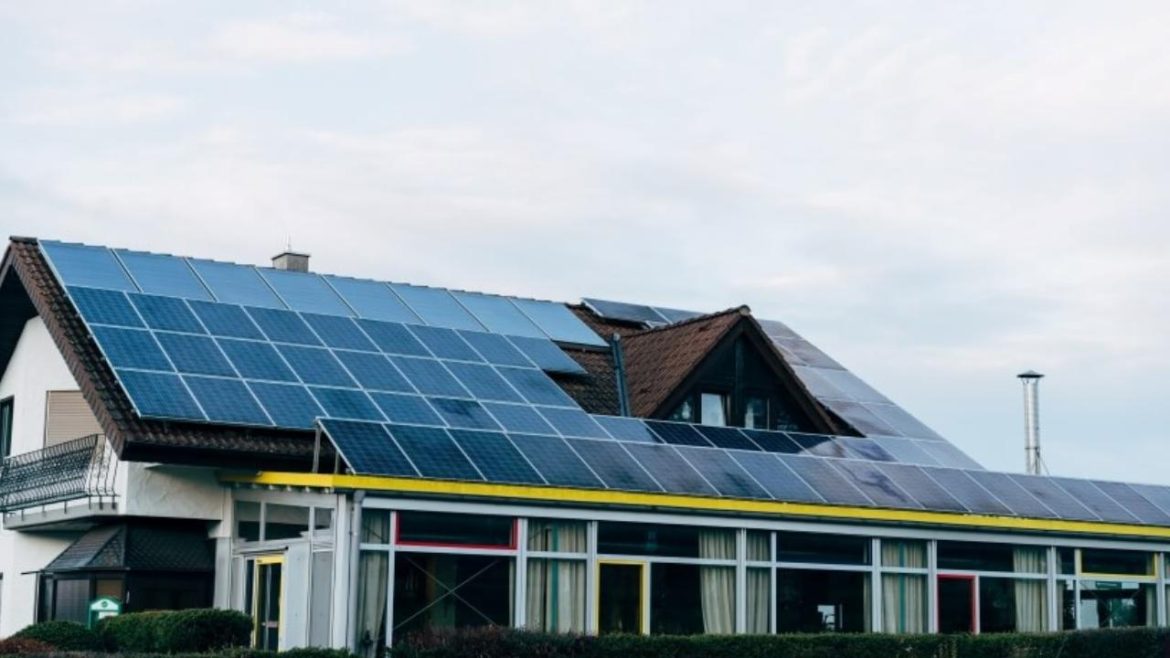With the growing emphasis on sustainable living and the popularity of renewable energy sources, more homeowners are looking to residential solar panels as a feasible alternative for powering their houses. Installing solar panels not only helps to reduce carbon footprints but also saves money in the long run.
A thoughtful evaluation of various considerations is required to Install the best residential solar panels. By understanding these factors, homeowners can confidently navigate the path towards solar energy adoption, aligning their energy needs and financial goals.
Factors To Consider When Installing Residential Solar Panels
However, before embarking on this transformative journey towards solar energy adoption, it is crucial for homeowners to carefully consider various factors to ensure a seamless and successful transition.
Assessing Energy Needs And Consumption
One of the fundamental considerations before installing residential solar panels is understanding the household’s energy needs and consumption patterns. Analyzing past utility bills can shed light on the amount of energy consumed throughout the year.
By identifying peak energy usage and average consumption, homeowners can determine the size of the solar panel system required to meet their specific energy demands. A comprehensive assessment enables an accurate estimation of the potential savings and return on investment.
Roof Suitability And Structural Considerations
The roof of a home serves as the foundation for the solar panel system, making its suitability and structural integrity vital factors. Before proceeding with the installation, homeowners should evaluate the roof’s orientation and angle relative to the sun’s path.
South-facing roofs tend to receive the most sunlight and are ideal for solar installations. Additionally, the available roof space must be sufficient to accommodate the desired system size.
Local Regulations And Permits
Installing residential solar panels often involves navigating through a maze of local regulations and obtaining necessary permits. Each region may have specific guidelines, zoning restrictions, and building codes governing solar panel installations.
Familiarising oneself with these regulations is essential to ensure compliance with local laws. Additionally, understanding utility interconnection requirements is crucial for determining how excess energy generated by the solar panels will be fed back into the grid or stored for later use.
Financial Considerations And Incentives
While the prospect of long-term energy cost savings is enticing, homeowners must first consider the initial financial outlay of installing residential solar panels. The upfront costs can vary depending on the system size, brand, and installation complexity.
However, it is important to remember that solar panel installations are a long-term investment, and the savings on electricity bills can outweigh the initial expense over time.
Choosing The Right Solar Panel System
Choosing the best residential solar panel system entails taking into account several aspects, including panel type, efficiency, warranty, and the manufacturer’s reputation. Solar panels are classified into three types: monocrystalline, polycrystalline, and thin film.
Each type of residential solar panel has benefits and drawbacks. Homeowners should select the one that best meets their demands and budget.
Solar Panel Installation And Maintenance
Choosing a reputable and experienced solar panel installation company, such as Benebomo, is crucial to ensure a smooth and successful installation process. Homeowners should thoroughly research and select an installer with a proven track record and positive customer reviews.
Proper maintenance of residential solar panels is essential for optimal performance and longevity. Routine tasks, such as cleaning the panels to remove dirt and debris, monitoring energy production, and inspecting for any signs of damage, should be performed regularly.
Conclusion
When it comes to the best residential solar panels, there are several factors to consider. Efficiency, durability, warranties, and cost-effectiveness are all crucial elements to evaluate. The market offers a variety of reputable brands and models that have proven to deliver exceptional performance and reliability.
It’s important for homeowners to conduct thorough research, consult with professionals, and assess their specific energy needs before making a decision. Ultimately, the best residential solar panels are the ones that suit individual requirements, offer long-term savings, and contribute to a sustainable future.
